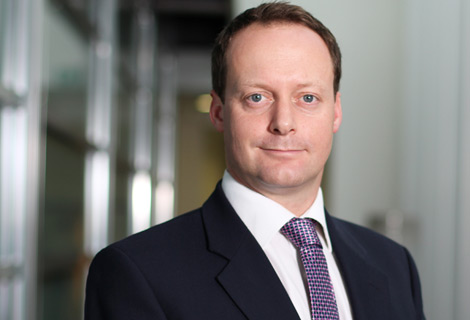Henderson International Income reduces management fee and changes benchmark for better alignment – Henderson International Income (HINT) has posted its half-year results for the six months to 28 February 2022. During the period under review, the trust returned a NAV return of -0.5% and a share price return of 2%. HINT’s performance comparator has been changed to the MSCI ACWI (ex UK) High Dividend Yield Index (sterling adjusted), which generated 1.9% total return over the period.
The company said the performance has been a result of a period which has seen the global economy experiencing several significant transitions and very sadly the world has recently seen the start of a war on the European continent. The human impact of the conflict in Ukraine is tragic and of primary concern, but the conflict has also exacerbated and added to supply chain and inflation problems.
Meanwhile, HINT has agreed with Janus Henderson a reduction in the management fee to a single rate of 0.575%. This new rate will take effect from 1 September 2022, the first day of the company’s new financial year.
As already highlighted, the board has been reviewing the options to ascertain whether there is a more appropriate index by which to measure the company’s performance that is more aligned with its objectives. The board has concluded that, given the income objective, the MSCI ACWI (ex UK) High Dividend Yield Index (sterling adjusted) is a more appropriate performance comparator than the MSCI World (ex UK) Index and has adopted the former as the benchmark.
Manager’s performance review:
The world has seen several significant changes over the last six months, and equity markets have experienced a series of mini rotations over the period, where different sectors have led the market, driven by the news flow. The following section discusses both the individual stock performances and some of the general equity market trends that have been evident.
Commodity prices have risen significantly over the period. Energy has been one of the strongest sectors. Both natural gas and oil prices rose initially on stronger than expected demand and an inability (or unwillingness in the case of OPEC+) for supply to respond in a timely manner. The invasion of Ukraine and subsequent sanctioning of Russia has raised concerns that high prices will persist for longer. The portfolio’s energy exposure was increased last year, and it has been the strongest positive contributor to performance over the period. Higher energy prices have side effects and have become a political issue in many countries due to their impact on consumers, particularly on lower income households. Holdings in European integrated utilities, Enel and Iberdrola, have been impacted by negative sentiment due to government intervention in retail energy prices in Spain and Italy. In the medium to long term both companies should benefit from an accelerated push towards electrification and decarbonisation of energy via renewables, grid, and security of supply infrastructure investment. In the short term this has been offset by near term concerns and the stocks have underperformed.
Interest rate expectations have increased globally, driven initially by faster than expected economic growth, and more recently by higher inflation expectations. Much of the financial services sector was impacted negatively by the fall in interest rates over the last decade, and a combination of economic growth and higher interest rates is generally supportive for sector earnings. The strongest performers over the period included commodity and interest rate derivatives exchange operator CME, Asian banks CTBC Financial Holding Company in Taiwan and KB Financial in Korea, and Macquarie Group of Australia, all of which reported good results and are perceived to benefit from a higher interest rate environment. The contribution from the sector would have been more significant, but the European financial holdings sold off at the end of February on geopolitical concerns. These European companies have subsequently reported results, including detail of their minimal, if any, exposure to Russia/Ukraine. The share prices have generally recovered since the end of the reporting period.
At a company level both consumer and corporate demand has remained strong. Continued supply chain issues have kept inventories low, enabling many companies to continue to generate high margins and cash flows. Semiconductor company, Broadcom, and computer and server manufacturer, Quanta Computer, were two of the best performers over the period, driven by ongoing demand for their products from the telecommunication and communications markets, along with luxury goods company Richemont, whose results showed the beneficial impact of its turnaround plan. Some companies continue to be impacted from ongoing outbreaks of Covid, including payments processor Fidelity National Information Services (“FIS”), and clothing company VF Corporation. FIS, for example, is a leader in payment services for airlines, and in the UK in general, and although sales are recovering, the Christmas period Covid outbreaks dampened final quarter sales numbers.
Despite generally positive corporate news, the market has understandably become more cautious recently and this has been reflected in improved relative performance from defensive sectors, including health care, consumer staples and telecommunications companies. These sectors all contributed positively to returns over the period. Notable contributors to performance include pharmaceutical companies, Sanofi, Bristol-Myers Squibb and Novo Nordisk, and telecommunications companies, Telus, and Telekom Indonesia. In response to the cautious shift, the consumer discretionary and industrial sectors have underperformed.
Gearing had a positive contribution to performance over the period. The currency impact of the Company’s euro-denominated long-term financing was positive as sterling strengthened against the euro. The Company’s long-term financing means that a fair value and par value return is quoted. The fair value of the debt reflects a theoretical market price and is impacted by changes in interest rate expectations in the financial markets. The rise in interest rate expectations during the period has reduced the fair value of the debt, enhancing the fair value net asset value return.
HINT : Henderson International Income reduces management fee and changes benchmark for better alignment
